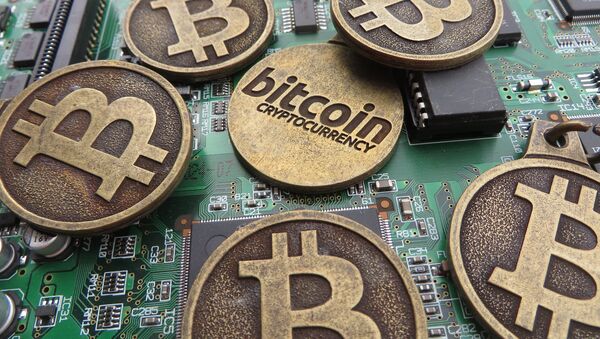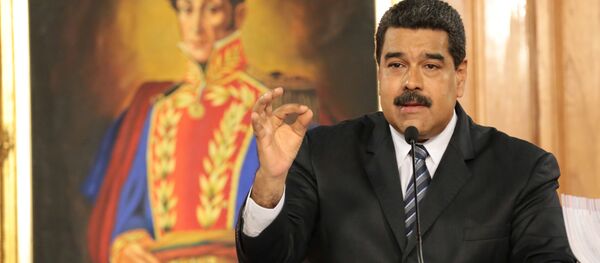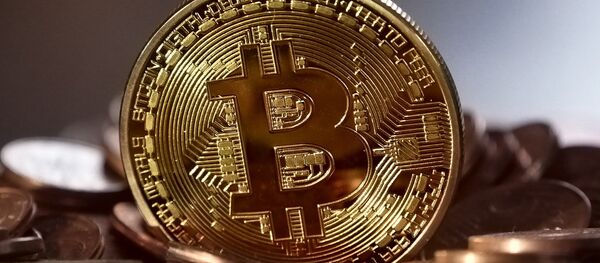On Sunday, Venezuelan President Nicolas Maduro said the country would establish a digital currency called the petro, which would be backed by oil, gas, gold and diamond reserves, in order to carry out financial transactions and search for new financing options.
The initiative follows a range of financial sanctions imposed by Washington on Caracas in August, which forbid US businesses from lending to the Venezuelan government or the state-run oil and gas company PDVSA. The sanctions also cut into the dividends that PDVSA's US subsidiary Citgo may send back to Venezuela.
Exchange Between Petro, Int'l Currencies Unclear
While Maduro’s initiative may be a very promising solution to Venezuela’s economic turmoil, the petro’s actual ability to support the Venezuelan financial system remains to be seen, according to Thomas Glucksmann.
"This would depend on the adoption of the petro as a popular currency used by Venezuelans to transact domestically, in addition to the exchange rate between the petro and other currencies for international trade. For example would purchase of Venezuelan natural resources by foreigners require settlement in the petro?" Glucksmann, who is head of business development for Asia-Pacific Economic Cooperation (APEC) at Gatecoin, a cryptocurrency and blockchain token exchange, said.
Meanwhile, jumping on the cryptocurrency bandwagon may be just another route to improve the country’s "poor management of national resources, institutions and fair treatment of its people," Charles Hayter from Crypto Compare cryptocurrency data analysis firm argued.
"Venezuela has a strong propensity to print money and devalue the currency — this risk is paramount with Maduro's gambit. Maduro's move is spurious at best and the currency will trade at a fractional level in relation to proven reserves and a steep discount due to sovereign risk — if it ever trades at all," Hayter, who is founder and CEO of the firm, warned.
"Becoming the settlement currency for trade may also be challenging as its likely US sanctions may also be applied to transactions involving the petro," Glucksmann said.
Overall, Maduro’s intention to create the digital currency backed by physical commodity reserves seems to be an idea worth considering by other resource-rich but less industrialized economies.
"An asset backed cryptocurrency that is directly tied to the natural resources of an economy is a very intriguing prospective solution to Venezuela’s current economic challenges. If successful, the approach could be adapted to other resource-rich but less industrialized economies, such as those in Central Asia and Africa," Glucksmann proposed.
Bitcoin's Popularity Unrelated to Maduro's Proposal
Since last week, Bitcoin, the world's most popular cryptocurrency, continues to renew its historic record value, reaching as high as $11,874 on Sunday, twofold of $5,948 recorded just three weeks ago on November 13.
Nevertheless, experts agreed that the sweeping popularity has nothing to do with Maduro’s initiative to create the state’s own cryptocurrency, being the first president in the world to officially support cryptocurrencies.
"This decision is more likely related to the general interest in cryptocurrency technologies instead of the speculative popularity of bitcoin. After all, the petro would be backed by the physical commodity reserves of Venezuela; bitcoin has no underlying physical asset or government backing. In fact, bitcoin mining and exchange activities have been persecuted in Venezuela because it is a decentralized cryptocurrency outside of government control," Glucksmann explained.
However, bitcoin’s increasing success encourages other countries to adopt similar technologies in their financial systems.
"Bitcoin's success is prompting a number of nation states to look at cryptocurrencies to reduce friction in economies and open new business models," Hayter concluded.
Bitcoin has no material form and allows users to make payments for goods and services online. It was introduced in 2009 as an independent alternative to government-backed currencies.






